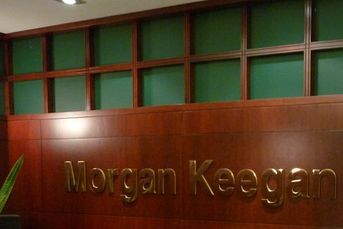U.S. commercial-property investors predict a profitable 2012

U.S. commercial-property investors are shedding their pessimism about 2012, with almost half expecting healthy profits this year, according to a survey by PricewaterhouseCoopers LLP
U.S. commercial-property investors are shedding their pessimism about 2012, with almost half expecting healthy profits this year, according to a survey by PricewaterhouseCoopers LLP.
About 49 percent of respondents said they expected good, very good or excellent earnings for the year, up from 42 percent in November, the New York-based accounting firm said in a midyear update of its annual report on commercial real estate trends. The percentage of investors expecting fair to abysmal returns dropped to 27 percent from 37 percent.
The results suggest the worst may be over for the market, which has sputtered since the middle of 2011. A recovery in U.S. commercial-property prices slowed in the first quarter as concern over Europe’s debt crisis limited financing for deals, Moody’s Investors Service said on May 24. Values have climbed 28 percent since the market bottomed in January 2010, following a recession and the 2008 financial crisis, according to Moody’s.
“The instability in global economies causes investors to look to hard assets -– and income-producing ones at that,” Mitch Roschelle, head of PricewaterhouseCoopers’s real estate advisory practice, said in an e-mail. “U.S. commercial real estate is viewed by many investors as a stable, risk-adjusted bet in today’s volatile global environment.”
The survey, conducted from May 8 to May 15, showed value increases for all five major property types — multifamily, warehouse and distribution, offices, hotels and retail. Apartments and warehouses led gains.
‘Hot-bed’ Markets
Investors were drawn to industrial properties in “hot-bed energy and high-tech markets” such as Austin, Texas, and California’s Silicon Valley, “where job gains, leasing demand and retail growth are expected to lead the country,” Roschelle said in the report.
Fannie Mae and Freddie Mac, the government-sponsored mortgage companies, are becoming a more reliable source of financing for multifamily deals, according to the survey. Commercial mortgage-backed securities, and so-called mezzanine lenders, who offer higher-interest loans as a bridge between senior mortgages and a down payment, were also seen as improving sources of funds.
Among leading cities for investment, Washington had the biggest decline in outlook. It was rated No. 1 in the November report.
“Possibly too much real estate at very high prices, combined with the possibility of the federal government’s cuts, has left a bad feeling in investors’ minds,” Roschelle wrote.
Buyers are showing interest in larger markets that were among the most damaged in the recession, according to Roschelle. Detroit, which ranked 51st in November, had one of the biggest gains in investor sentiment, behind only Boston and Houston.
The report, produced with the Washington-based Urban Land Institute, is based on interviews and survey responses from about 950 real estate investors, developers, lenders, brokers and consultants. The midyear update was based on 195 people surveyed for the November report.
–Bloomberg News–
Learn more about reprints and licensing for this article.







